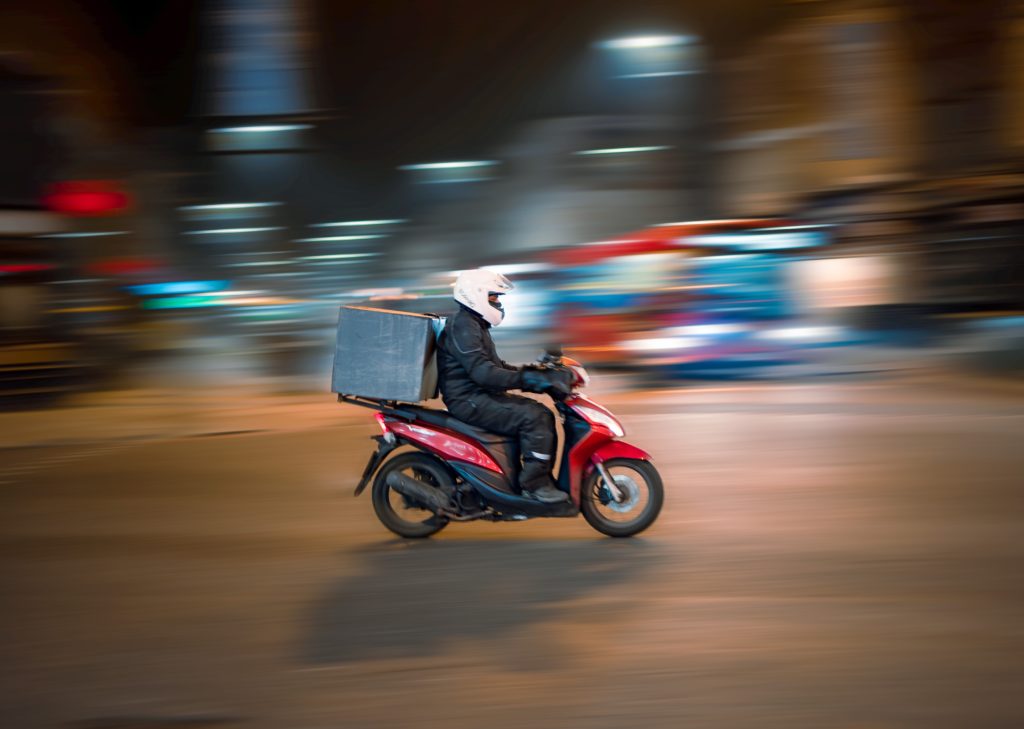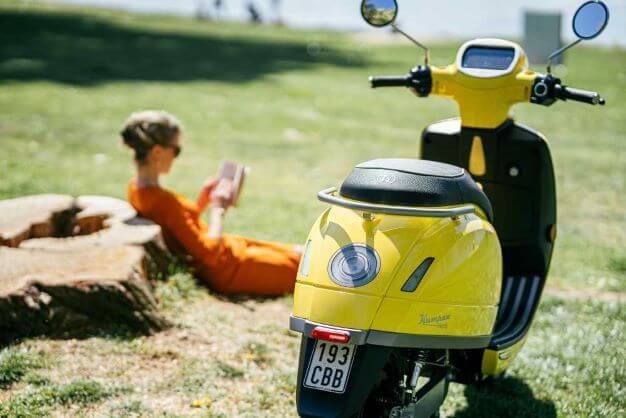Stay Safe: Know the Virginia Moped Laws and Scooter Laws

Thousands of people in the state of Virginia sustain injuries on mopeds, scooters, and motorcycles. Motorists planning to ride one of these vehicles need to know Virginia moped laws and learn how to stay safe.
Every year, hundreds of people in Virginia are involved in a moped-specific-related accident. In 2019, 318 moped accidents occurred with 278 people injured and 13 people killed. While these numbers may not sound too high, it’s important to consider that many injuries are considered “serious”.
After all, mopeds and scooters don’t have the same protective elements cars and other larger vehicles do. If you are involved in a moped or scooter accident, a Virginia motorcycle accident lawyer can help. Steven M. Oser P.C. is an experienced Virginia personal injury lawyer who is well-versed in Virginia law about mopeds and scooters. To obtain a free consultation, call his law office at (757) 539-4127.
What are the Virginia moped laws?
Under moped law and the Virginia Department of Motor Vehicles, these bikes are street legal, but riders must register and title their vehicle, along with following specific rules when operating on roadways in the Commonwealth. Mopeds also need license plates.
Motor scooter laws in Virginia require moped riders to wear a helmet, use eye protection/safety glasses, if no windshield (or face shield) is on the vehicle, and carry a government-issued photo ID (which doesn’t have to be a driver’s license), and cannot operate over 35 mph speed limit. Riders not following scooter laws in Virginia are subject to penalties and fines.
DMV stipulates riders must be at least 16 years old to operate one under Virginia scooter laws. Mopeds and electric scooters are not permitted to drive on Virginia’s interstate roadways and must obey all traffic laws and general rules of the road when navigating other driving surfaces.
Are There Differences Between Mopeds and Scooters?
While mopeds and scooters are similar in build, there are differences since scooters have more power. Under scooter laws in Virginia, drivers don’t need a license to operate either a scooter or moped that has less than a 50 cc (cubic centimeter) engine output. Anything with 50 ccs or more power requires drivers to carry both a driver’s and motorcycle’s license before operating an electric bike of any kind meeting this description.

How are the Motorcycle Laws of Virginia different from Virginia Moped Laws and Scooter Laws?
Motorcycle laws in Virginia state have differences from moped laws. However, some scooters are required to follow the same rules as motorcycles since the Commonwealth considers certain types of scooters to be motorcycles, while others are classified as mopeds.
In Virginia, a moped is a vehicle traveling on three wheels or less, has a seat at least 24 inches in height, and operates at 50 ccs or less using gasoline, electric, or hybrid. No driver’s license is required for moped riders. However, drivers who have had driving privileges revoked or suspended due to DUI-related convictions must attain full compliance with DMV requirements before the operation of mopeds is allowed.
On the other hand, motorcycles carry more stringent requirements than mopeds or scooters. Riders must obtain a motorcycle license (class M), properly register and title their vehicle, and obtain license plates. They must also carry insurance meeting the Virginia minimum requirements. Motorcycles must have an annual safety inspection and annual registration like automobiles.
Scooters may be considered either mopeds or motorcycles, depending upon their makeup.
Leading Injuries Caused by Moped Scooter Accidents
Riding a two or three-wheeled vehicle is fun for many people. Unfortunately, one of the largest tradeoffs is an increased risk for injury. According to the NHTSA, motorcyclists are roughly four times more likely to be injured and 28 times more likely to suffer a fatality in a crash than passenger vehicle occupants. Leading injuries include:
- Traumatic brain injury
- Broken bones and fractures
- Spinal cord injuries
- Road rash
- Severe lacerations
- Internal bleeding
- Organ damage
- Nerve damage
In a crash, larger vehicles always fare better than a cyclist of any kind. For mopeds and scooters, their low capacity for speed makes them targets since cars and trucks drive much faster.
Additionally, since motorcycle, scooter, and moped drivers don’t have the same protective elements as cars and trucks, such as doors, vehicle frame, and airbags, it’s critical riders understand electric scooter laws in Virginia and obey them to reduce the risk of injury or death. Other motorists in Virginia can be aggressive in traffic, putting all two and three-wheeled riders at higher risk.
Safety Tips for Riding Mopeds and Scooters
Drivers and passengers of mopeds and scooters who take precautions when navigating Virginia roads can better protect themselves. The following tips help increase the safety factor.
- Use required and any additional safety equipment
- Wear gloves and a riding jacking
- Keep occupancy as designed
- Always be aware of road conditions and surroundings
- Use both side mirrors and position them optimally to maximize visual capacity
- Don’t operate a vehicle while using earphones
- Drive defensively and avoid aggressive driving behaviors, including not going over maximum speed for these bikes
When possible, minimize or avoid driving a moped or electric scooter at night. If you must, be sure to wear bright clothing when it’s dark.
Talk to a Qualified Attorney About Virginia Motor Scooter Laws
Drivers of any type of vehicle can protect themselves by understanding Virginia’s motor vehicle laws, including motorcycle and electric scooter laws. When all drivers obey laws designed to protect people, this decreases the chances of anyone getting hurt.
In addition to moped and electric scooter laws, Attorney Oser is an experienced Virginia Car Accident Lawyer and Virginia Truck Accident Lawyer. Since 1989 his office has been serving Suffolk, Windsor, Franklin, Ivor, Wakefield, Waverly, Surry, Smithfield, Courtland, Chesapeake, Virginia Beach, Norfolk, Portsmouth, and all of Hampton Roads. He will successfully handle your case.
To discuss your situation or obtain a free case evaluation, call the law office of Steven M. Oser at (757) 539-4127 or complete our online contact form. We are happy to answer any questions or address any concerns you have about operating any vehicle in Virginia.
